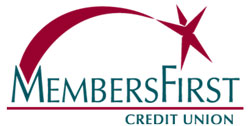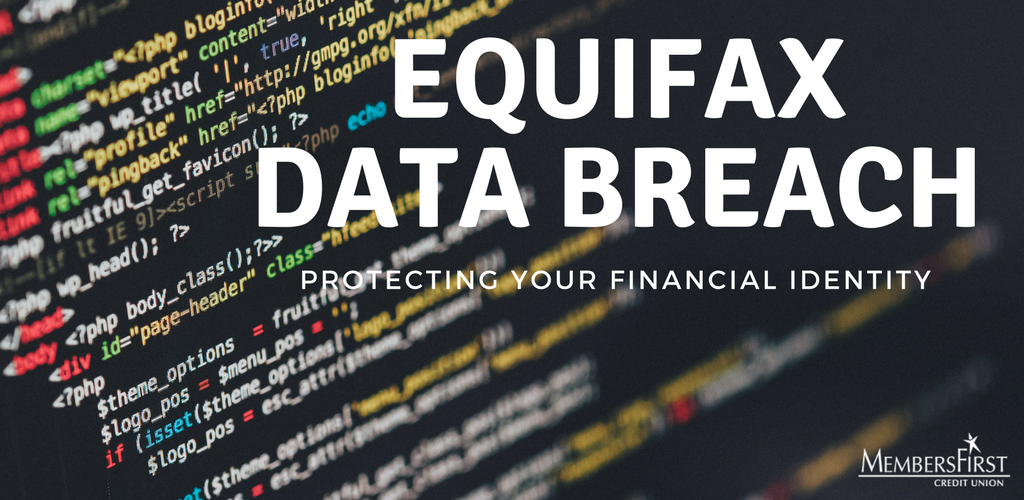By now, it’s safe to assume most of us have heard about what Equifax is referring to as a ‘cybersecurity incident’. For those of us who haven’t, here’s a quick recap:
- Hackers took advantage of a weak area in an Equifax application between May and July 2017.
- Information that may have been stolen included names, addresses, Social Security numbers, birthdates and driver’s license numbers for close to 143 million U.S. customers.
- You will need to take action to protect your information and credit by first visiting equifaxsecurity2017.com to find out if you were included in this data breach.
- Equifax is offering one year of free credit monitoring to those effected.
- In addition to the breach of personal information, some 209,000 credit card numbers and 182,000 dispute documents containing personal information may also have been stolen. Equifax will alert those affected via U.S. mail.
Also, while it’s true we have the word ‘credit’ built into our name, it’s important to understand your credit union was not breached and your account information with the credit union remains safe.
What this breach could mean to you.
Thieves could use the stolen information to pretend to be you and open accounts like credit cards, auto and personal loans in your name. This could be harmful to your chances of being approved for loans and accounts you are actually applying for in the future. Landlords, utility companies, cellular service providers, employers and others also use your history when deciding to hire, grant you credit, lease a home to you, provide you with internet and other services necessary for daily life. If someone else has taken your good credit on a joy ride, it’s likely they won’t plan to also make the corresponding payments, thus, leaving you with raised debt ratios and poor pay history. All this adds up to lowered credit scores and one big mess to clean up once you’ve discovered they’ve taken advantage of your hard work.
So how, then, do you protect yourself?
The good thing to know is you do have options which could prevent the above scary situation. Some experts suggest a complete ‘freeze’ of your credit file while others suggest a ‘lock’. The two seem the same; however, there’s a difference in how to go about adding and removing the freeze or lock.
According to TransUnion, a major credit reporting agency, locking your credit file puts you in control of preventing lenders and others from accessing your credit. When you lock your credit yourself, there’s zero waiting period, need for a PIN number and no fee is charged. TransUnion suggests enrolling in their credit monitoring program, TrueIdentity, which gives you the ability to lock and unlock your credit anytime while providing free monitoring alerts for critical credit information changes.
Freezing your credit, however, means you’re turning over control to credit reporting agencies to remove and control access to your credit file. You initiate the request to freeze and unfreeze, reporting agencies do the rest. A few things to keep in mind with a credit freeze:
- There are fees associated with freezing and unfreezing your credit and you must initiate the request with each of the major credit agencies separately. These fees can range from $3 – $10, depending on your state, per request.
- You may not be able to immediately freeze and unfreeze your credit file. Keep this in mind if, for instance, you’re out and about car shopping and decide to have your credit pulled for loan approval. In some cases, it can take up to 48 hours and may require a fee to unfreeze. Patience is a virtue, but in a world where instant gratification often reigns, it can feel like an eternity.
- A PIN is required and must be provided when applying for new credit. If you forget your PIN, you’ll have to take in-depth steps with one or more of the credit bureaus to verify your identity and reset your PIN. As this breach is related to personal identifying information, identification processes may be strenuous. If you choose this option, be sure to choose a PIN you will remember.
Clark Howard made it even easier for all by providing links to freeze or lock your credit with each of the 3 main credit bureaus (thanks, Clark!) You can visit the page by clicking here.
As credit card info for 209,000 cardholders across the U.S. and possibly another 182,000, we encourage you to take advantage of Remote Control Card services by logging into mobile banking using our FlexTeller app and turning your debit cards ‘on’, or active, and off, or ‘disabled’ as you need to use them. If you have questions about this service, let us know!
Is there such a thing as ‘too much’ protection?
In this case, it’s not possible to be overzealous in protecting your financial identity, especially since it’s important to remember you may not immediately see false accounts or trade lines on your credit report. Identity thieves are patient…this breach happened in May – July 2017 and it’s possible, if your information is misused at all, it may not be evident for a long time. If you do not choose (and even if you do) to block or freeze your credit, you should be diligent in monitoring your financial accounts and credit report for any suspicious activity. You can do this by requesting your credit report from each of the three major credit agencies, Equifax, TransUnion and Experian, at no charge, once per year. To request a copy from one or each of these agencies, visit annualcreditreport.com. Some may choose to enroll in other credit monitoring services like Credit Karma. If so, understand these services are not the ‘be all, end all’; combine the info you see with these services to what you see on the credit reports you request.
Still, despite all you can do to help yourself, we’re here for you as well…working to calm the concerns you’ve expressed to us when calling, emailing and stopping by one of our offices. You should know we take this breach very seriously and have taken steps to ensure your member advisors are working to protect you and your information. Just as we’ve always done, we’ll continue to ask you to verify your account and contact information by asking several questions when you call. This will continue to be consistent across the board and we ask that you be patient while we complete this process as it’s truly in your best interest. A few extra seconds spent verifying your identity could prove to save you hours of frustration in the long-run should identity thieves attack the security of your information.
If you have any questions or concerns, please don’t hesitate to give us a call at 404-978-0080.

